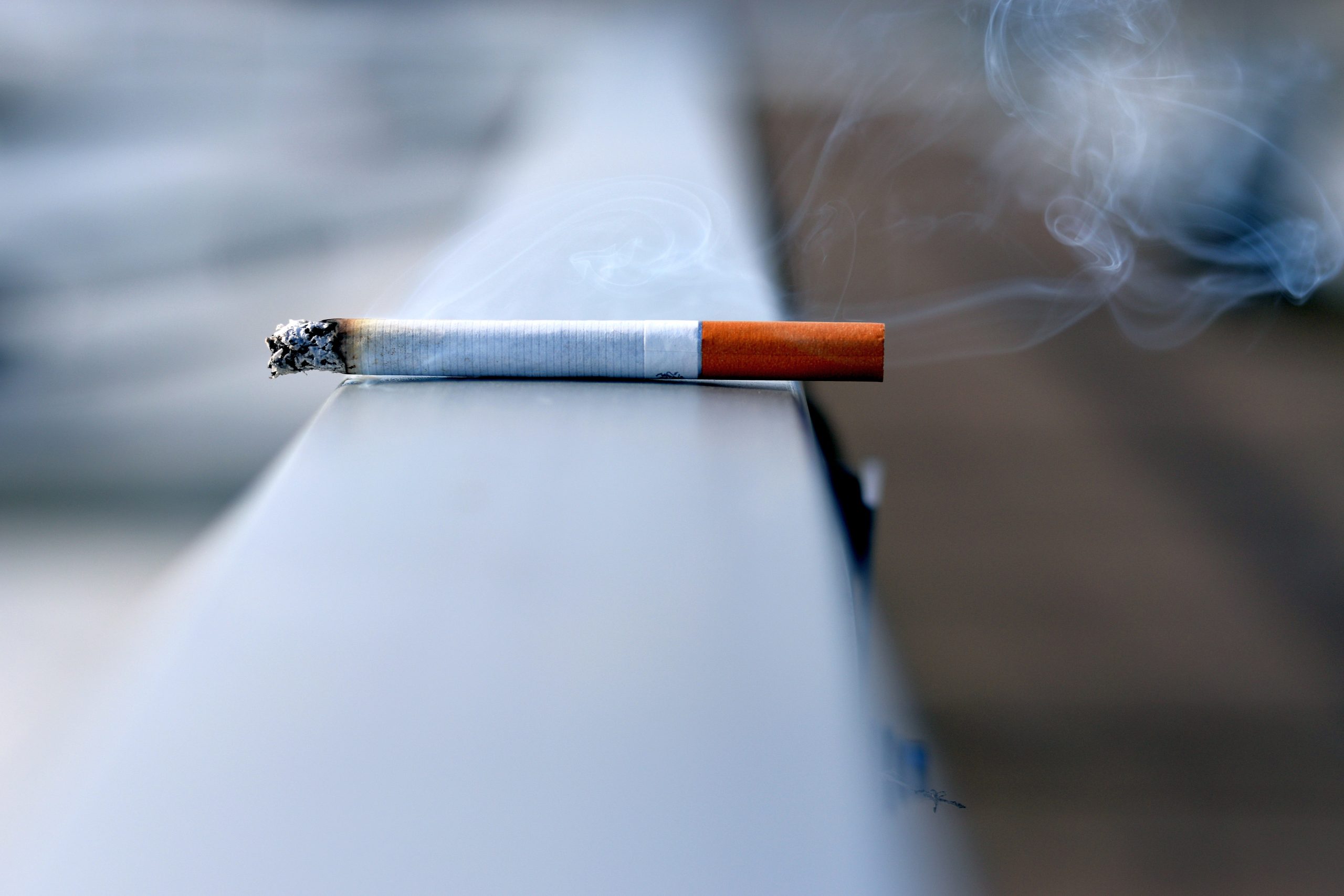How Long Does Nicotine Stay in Your Blood?
Nicotine is a naturally occurring alkaloid found in tobacco leaves, which are used in various tobacco products such as cigarettes, cigars, and smokeless tobacco. This section provides an in-depth exploration of nicotine, including its chemical structure, pharmacological effects, and the mechanisms through which it interacts with the body’s receptors.
What is Nicotine?
Nicotine is a chemical made by several types of plants, including the tobacco plant. It is also produced synthetically.
The type of nicotine found in tobacco plants comes from the nightshade family of plants. Other plants in this family are red peppers, eggplant, tomatoes, and potatoes.
Nicotine is found in tobacco, and it is a metabolite of nicotine. When you are exposed to tobacco, the level of nicotine is checked. nicotine is being studied because researchers have found that nicotine is beneficial in certain psychiatric symptoms.
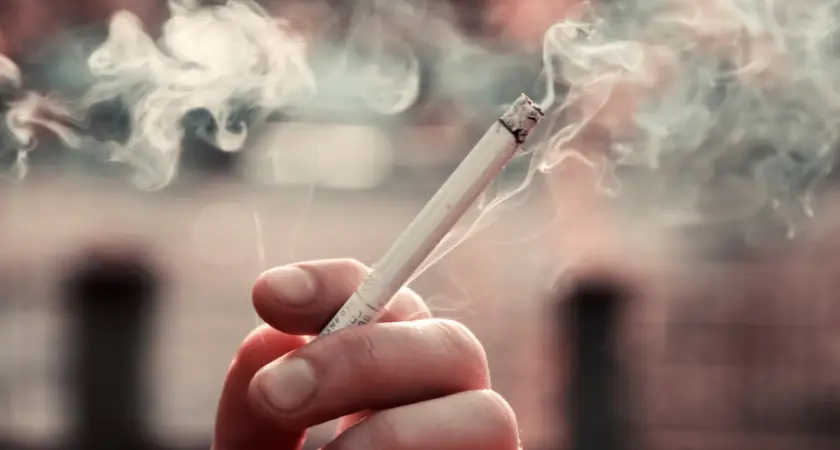
Why Do People Use Nicotine?
Nicotine is both a sedative and a stimulant.
When a body is exposed to nicotine, the individual experiences a rush as nicotine stimulates the adrenal glands, causing the glands to release adrenaline.
There is an immediate release of glucose, as well as an increase in heart rate, breathing activity, and blood pressure.
Also, nicotine indirectly causes the release of dopamine – which also happens when people take heroin or cocaine. The result is a pleasurable sensation.
The immediate effects of nicotine go away in one or two hours, so people soon feel like they need another dose.
How Do People Take in Nicotine?
The most common way of consuming nicotine is by smoking cigarettes. According to the World Health Organization (WHO), over one billion people worldwide are regular tobacco smokers. People also take in nicotine by snorting snuff, chewing tobacco, and nicotine replacement therapies (NRTs), such as nicotine gum, lozenges, patches, and inhalators.
What Happens When You Use Nicotine?
Whenever you smoke or chew tobacco, or inhale second-hand smoke from a cigarette, nicotine is absorbed into your bloodstream.
From there, enzymes in your liver break most of the nicotine down into different substances, including cotinine and anabasine. The resulting amount of cotinine will be proportionate to the amount of nicotine you ingested. These substances are eventually eliminated in urine.
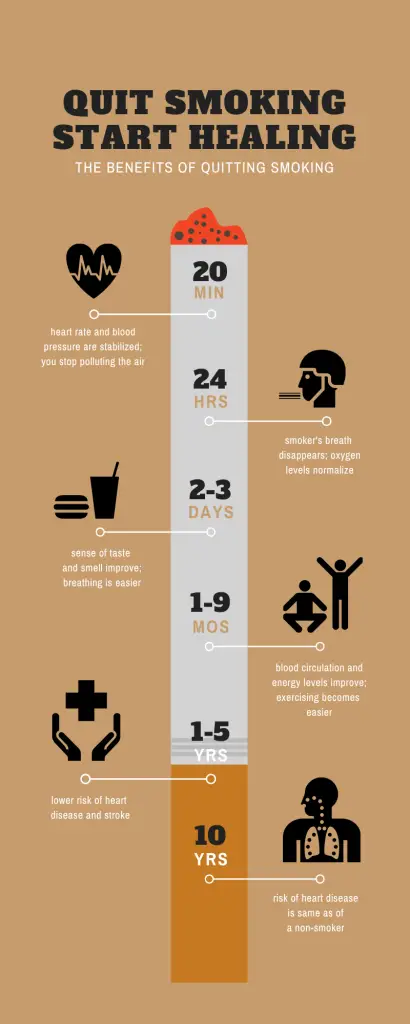
How Long Does It Take Nicotine to Leave Your Body?
The exact length of time it takes for nicotine to clear differs between people. Nicotine may flush from your system sooner or even last longer, depending on various factors.
As can be expected, the more someone smokes, and the higher the frequency of smoking, the longer nicotine takes to leave the body.
If you’re a light user, who smokes only once per week, traces of nicotine are typically cleared from your system within two to three days of smoking.
If you’re a heavy user who smokes consistently on a daily basis, then traces of nicotine may be detectable for up to a year after your last exposure.
Age: The older you are, the longer it can take your body to remove this toxin.
Genes: Some research seems to suggest that Caucasian and Hispanic people may process nicotine faster than people of Asian or African descent.
Hormones: It is also thought that sex hormones play a role in determining how quickly nicotine leaves your body. Women, especially those who are pregnant or taking birth control pills, tend to process nicotine more quickly than men.
Liver function: Different people may metabolize nicotine at different rates depending on their liver enzymes.
Medications: Certain medications can affect how quickly or slowly your body metabolizes nicotine.
Medications that speed up of metabolism of nicotine include:
Antibiotics such as rifampin (Rifadin) while medications that slow down metabolism of nicotine include antifungals such as ketoconazole and high blood pressure medication, such as amlodipine. Long term damage is done to the body when you smoke for an extended amount of time.
How Can You Clear Nicotine From Your Body?
The best way to clear nicotine out of your system is to abstain from all tobacco products. With no further nicotine coming in, your body can break down existing nicotine and excrete it.
There are some things you can do to speed up this process:
Drink water: When you drink more water, more nicotine is released through your body through urine.
Exercise: This increases your body’s metabolism rate, leading you to process nicotine faster. Sweat released through exercise takes nicotine and its by-products with it.
Eat foods rich in antioxidants: Antioxidants can also help boost your body’s metabolism rate. Good options include oranges, carrots, berries, bell peppers, and leafy, green vegetables. In addition to antioxidants, these foods also contain compounds like fiber that help in toxin removal.
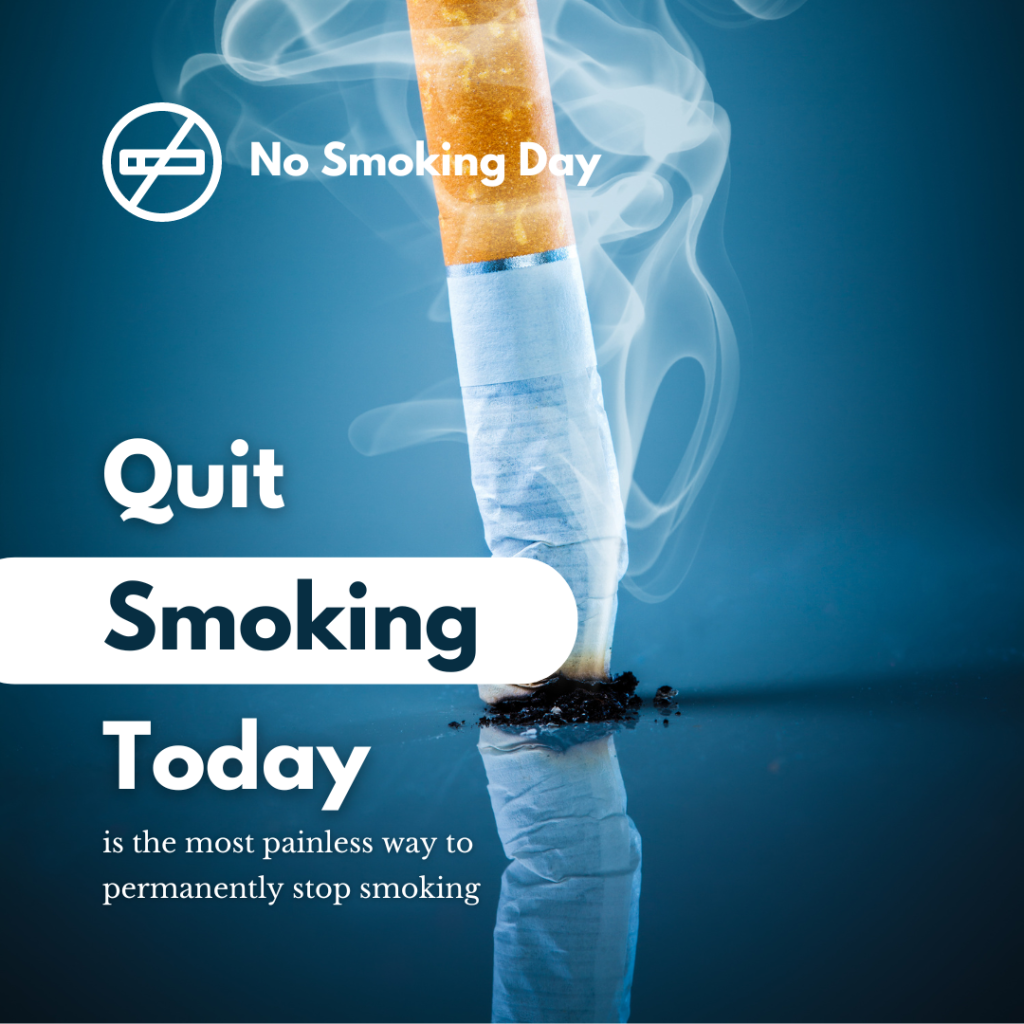
Testing for Nicotine
Some employers, insurance companies, and other institutions sometimes test potential employees or customers for nicotine.
Broadly speaking, there are two kinds of tests:
Qualitative testing simply looks for whether or not you have nicotine in your body.
Quantitative testing actually measures the concentration of nicotine or cotinine in your body. Quantitative testing gives more information about your tobacco habits. Such tests can tell whether you are an active smoker or if you have recently quit. If you’re not a tobacco user, such tests can indicate if you’ve been breathing in a lot of tobacco smoke or not.
What do the tests look for?
These tests can detect nicotine, cotinine, and anabasine.
Usually, the tests look for cotinine, not nicotine. That’s because cotinine is more stable and, in general, stays in the body longer than nicotine itself. Cotinine is only found in your body if you have processed nicotine.
If you have quit smoking or using other tobacco products and you’re now on a nicotine replacement product such as a nicotine patch or nicotine gum, you may need a test that looks for nicotine, cotinine, and anabasine. Anabasine is found in tobacco but not in commercial nicotine replacement products. This means that if the test shows that anabasine is present in your body, then that indicates you’re actually still using tobacco.
Nicotine tests can be carried out on blood, urine, saliva, or hair.
How Long Does Nicotine Stay in Your Blood?
1. Nicotine Duration in Hair: Nicotine and its metabolites can be incorporated into the hair shaft through blood circulation. As hair grows, it retains evidence of nicotine exposure, making hair testing a useful method for detecting long-term nicotine use. Generally, nicotine can be detected in hair for up to 90 days or even longer, depending on the length of hair and frequency of tobacco use. It’s important to note that hair testing can provide a historical pattern of nicotine use but cannot determine recent or current use.
2. Nicotine Duration in Nails: Similar to hair, nicotine can also be incorporated into nails as they grow. However, the detection of nicotine in nails is less common compared to other testing methods. Limited research suggests that nicotine can potentially be detected in nails for up to several months, similar to hair. Further studies are needed to establish the accuracy and reliability of nicotine detection in nails.
3. Nicotine Duration in Urine: Nicotine and its metabolites are eliminated from the body primarily through urine. Nicotine can be detected in urine within a few hours of tobacco use and can remain detectable for approximately 3 to 4 days. In some cases, nicotine can be detected for up to a week, especially for heavy or chronic smokers. Urine testing is commonly used in workplace and forensic settings to assess recent nicotine exposure.
4. Nicotine Duration in Blood: When nicotine is inhaled or consumed, it enters the bloodstream, allowing it to reach various organs and tissues in the body. Nicotine is quickly metabolized and eliminated from the bloodstream. Blood testing for nicotine is primarily used to assess recent exposure or in cases where immediate detection is required. Nicotine can generally be detected in the blood for about 1 to 3 days after tobacco use.
5. Nicotine Duration in Saliva: Nicotine can also be detected in saliva, particularly in the oral fluids of individuals who use tobacco products. Saliva testing is non-invasive and can provide an indication of recent nicotine exposure. Nicotine can be detected in saliva for approximately 3 to 4 days after tobacco use. However, it’s important to note that the detection window may vary depending on factors such as individual metabolism and smoking patterns.
It’s crucial to remember that the duration of nicotine in different body parts may vary from person to person due to individual factors such as metabolism, frequency and intensity of tobacco use, and other physiological characteristics. Additionally, it’s important to consider that testing methods have limitations and may provide different detection windows based on their sensitivity and the specific compounds targeted for analysis.
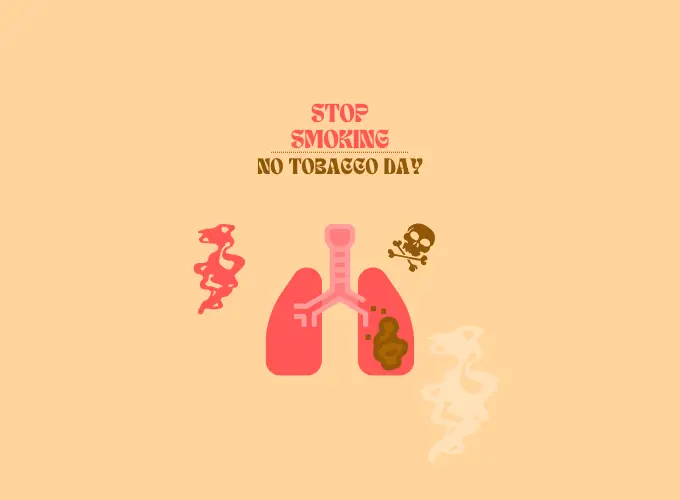
Let us look at how long nicotine can be detected by these tests.
Blood Test
If you have to do a blood test, a laboratory technician will insert a needle into your vein to collect a blood sample. After the blood sample is drawn, results can take from two to ten days. Generally, nicotine lasts in your bloodstream for one to three days after you stop using tobacco, and cotinine can be detected in your blood for up to ten days.
Urine Test
If you have to do a urine test, you will be asked to submit a random urine sample, which means the sample can be taken at any time of day. Results are normally returned from within 24 hours to five days
If you smoke infrequently, cotinine will usually be present in your urine for about four days. If you smoke menthol cigarettes or breathe in second-hand menthol smoke, cotinine may stay in your urine longer. With regular exposure to nicotine, cotinine may be detectable for up to three weeks after your last exposure.
Saliva Test
To perform this test, a technician will swab the inside of your mouth and test oral fluids for nicotine. A dry mouth, on one hand, or excessive salivation on the other can sometimes pose problems with collecting a sample. Results can take 24 to 72 hours.
A saliva test can detect cotinine for up to four days. Nicotine and cotinine can take as little as 24 hours or up to four days to be fully flushed from your saliva. In heavy smokers, this can be as long as 14 days.
Hair Test
Although hair testing is possible, it is not used as frequently as urine, saliva, or blood testing. This is because hair testing generally costs more than the other tests. People are rarely asked to do a hair test unless they are taking part in the research.
Traces of nicotine can generally be found in your hair follicles for up to three months after your last exposure. In some cases, through hair testing, nicotine may be detected for up to a year after your last exposure.
Conclusion
How long nicotine stays in your blood largely depends on how much you put in, to begin with, and on your current lifestyle. With frequent and heavy tobacco use, you will need up to a year for nicotine and its by-products to leave your body. Drinking lots of water, exercise, and eating food rich in antioxidants will help your body clear nicotine faster.
References
https://www.who.int/health-topics/tobacco#tab=tab_1
https://www.medicalnewstoday.com/articles/322526
https://www.medicalnewstoday.com/articles/240820
My name is Phyllis Robinson MSN, RN. I have been a Registered Nurse for 27 years in the Cardiac Intensive Care Unit. I am passionate about cardiac care and heart disease. I also want this blog to be an educational tool that people can refer to for traditional and alternative treatment. I will blog on heart disorders such as high blood pressure, congestive heart failure, cardiomyopathy, and high cholesterol.
I received my Nursing degree from Baltimore Community College.
I went on to receive my Masters in Nursing from Walden University
I have worked for almost 30 years in Critical Care with a focus on heart health. I am an advocate of preventive healthcare.

